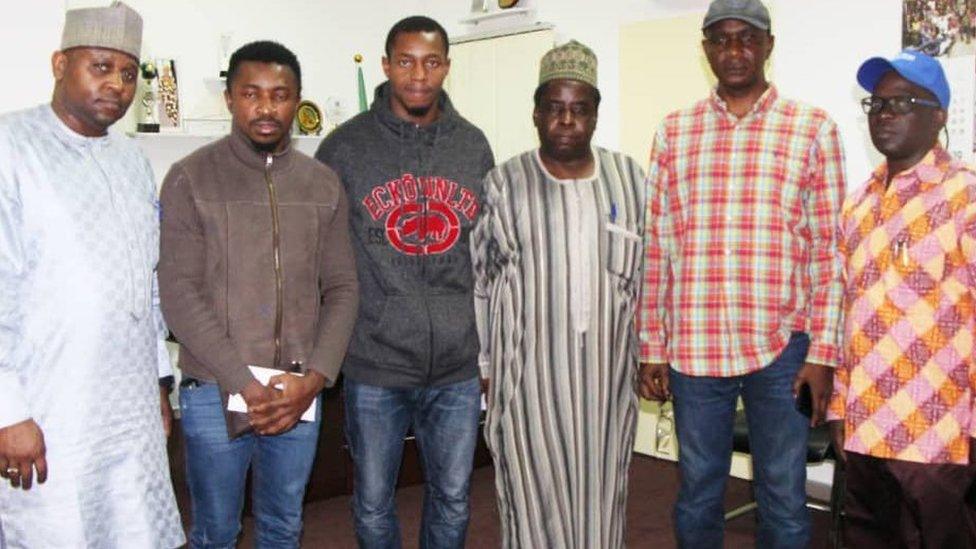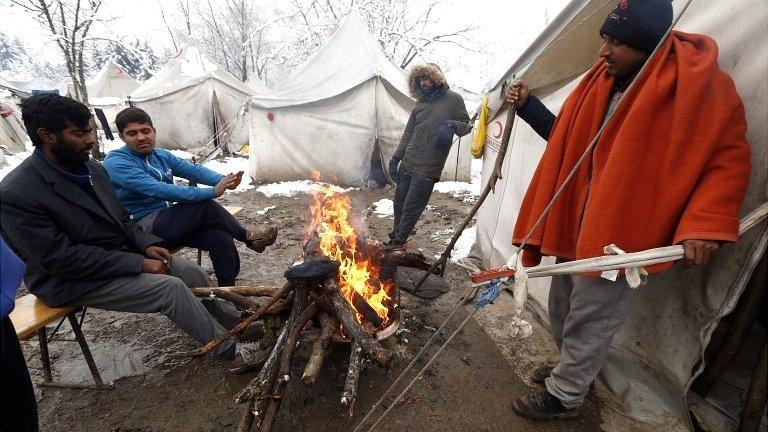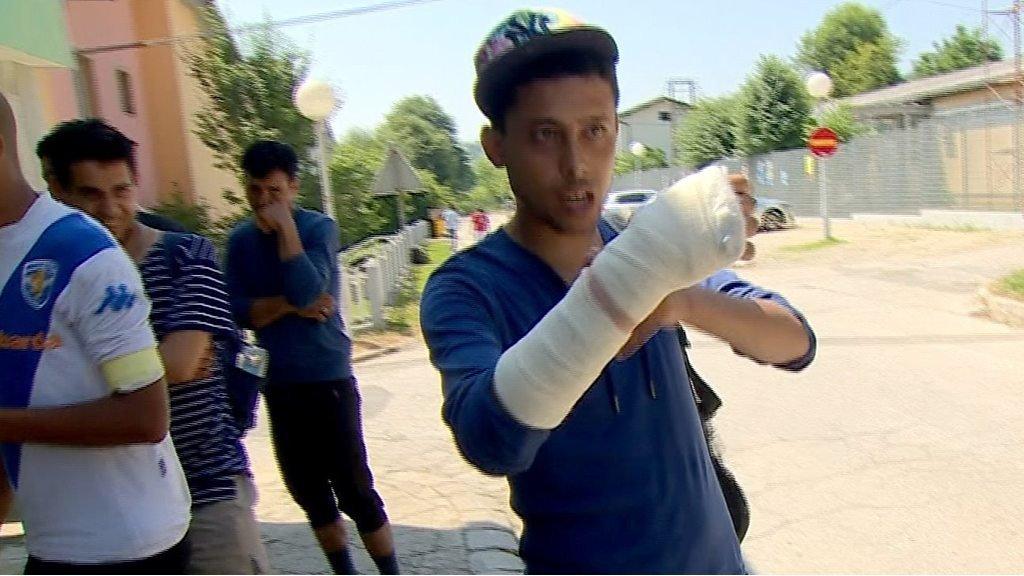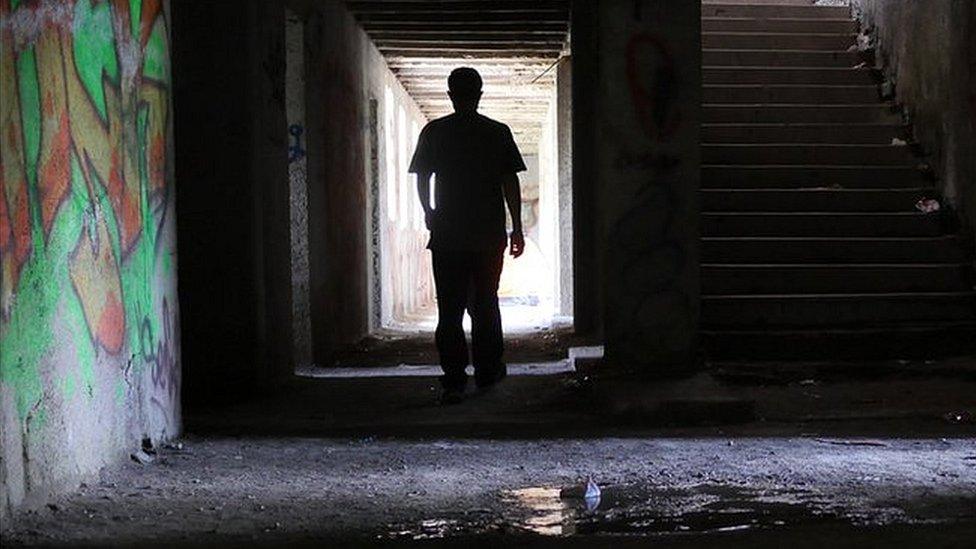Nigerian table tennis players home from Bosnia camp
- Published

Kenneth Eboh and Uchenna Abia (second and third from left) in a picture released by the Nigerian Diaspora Commission.
Two Nigerian table tennis players who say they were deported to Bosnia-Herzegovina after Croatian police mistook them for illegal migrants have returned home.
Uchenna Abia and Kenneth Eboh told the BBC they were happy to be back.
The students travelled to Croatia for a tournament last month but claim police forced them into Bosnia, where they were held in a migrant camp.
Croatia's interior ministry said it did not know how they ended up there.
What happened?
Mr Abia and Mr Eboh entered Croatia legally last month to take part in a student table tennis competition in the city of Pula.
They say they were taking a walk in the capital Zagreb ahead of their scheduled return to Nigeria when Croatian police officers picked them up, drove them to the border, and forced them at gun-point to cross into Bosnia.
"They forced us inside a bush in Bosnia. We didn't have any choice because they tried to shoot us", Mr Eboh told the BBC's Focus on Africa.
"They said that 'you are from Bosnia, you have to go to Bosnia'", he added.
The students said attempts to communicate with the officials and explain that they had valid visas were ignored.
"We don't know the reason why they sent us to another country at midnight... and they forced us to go through the bush," Mr Eboh said.
They were then held in a camp near the border town of Velika Kladsa, where they say their phones were confiscated.
Bosnia is a major route into the EU, with 45,000 migrants arriving in the country since the start of 2018. Aid agencies have warned of a humanitarian disaster there, with people facing a winter without proper accommodation.
Inside Bosnia’s ‘nightmare’ camp for migrants trying to enter the EU
Mr Abia described people in Bosnia as "friendly", saying they were grateful to Bosnian volunteers who visited the camp and gave them food.
Following his return to Nigeria on Saturday, Mr Abia said he felt "free [and] safe".
"When you are free you know you are free," he told the BBC.
The Croatian government has denied their allegations, saying the students disappeared after checking out of their hotel voluntarily.
A ministry spokesperson said officials were checking if it was "another attempt by foreign citizens to abuse attending a sporting tournament in Croatia" to stay in Europe, according to state news agency Hina.
Several migrants who tried to enter the EU via Croatia told the BBC earlier this year that they had been assaulted by Croatian police and illegally expelled back to Bosnia.
'Beaten and robbed by Croatia border police'
- Published7 December 2019

- Published29 July 2019

- Published7 July 2018
